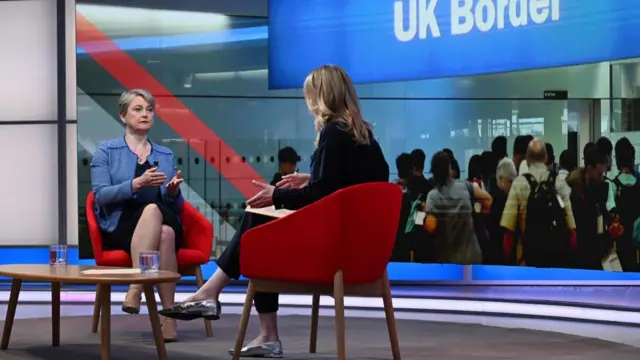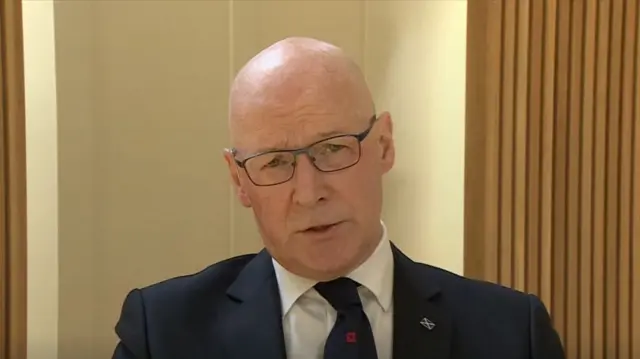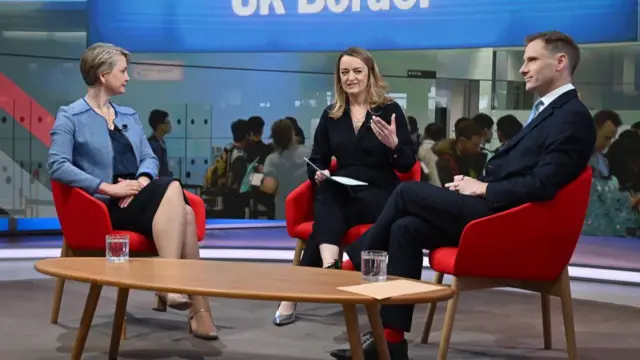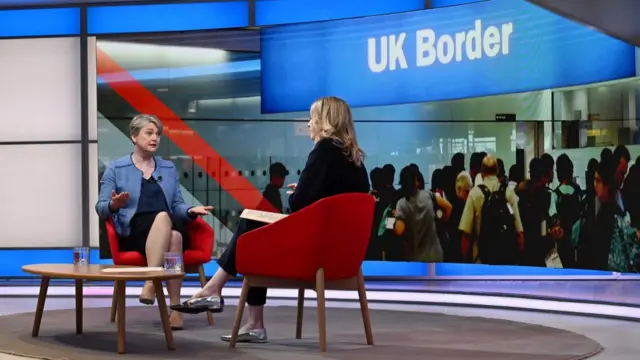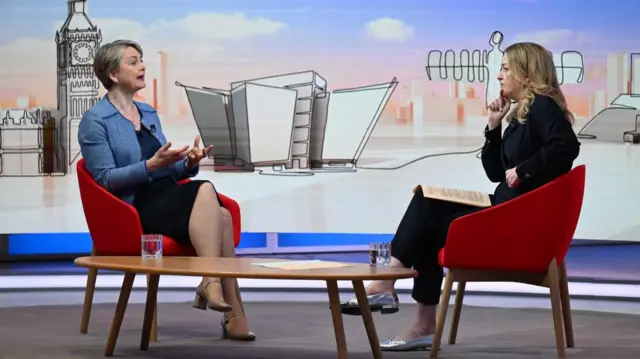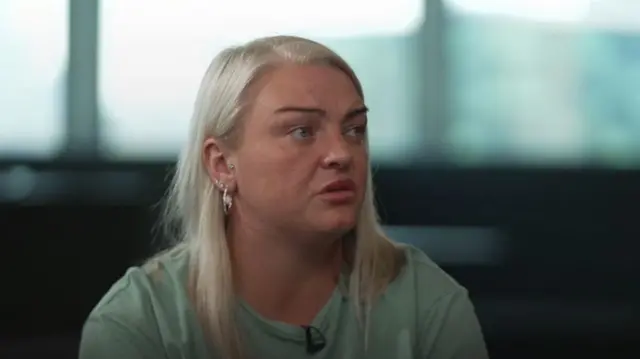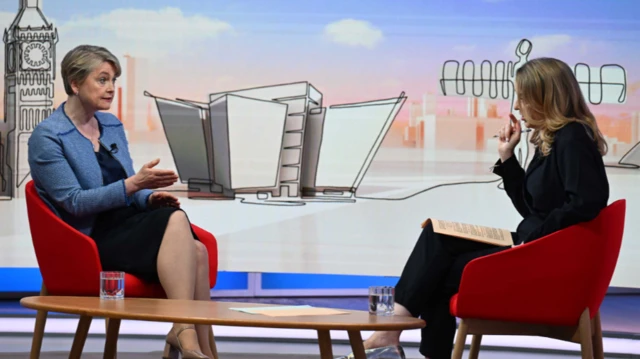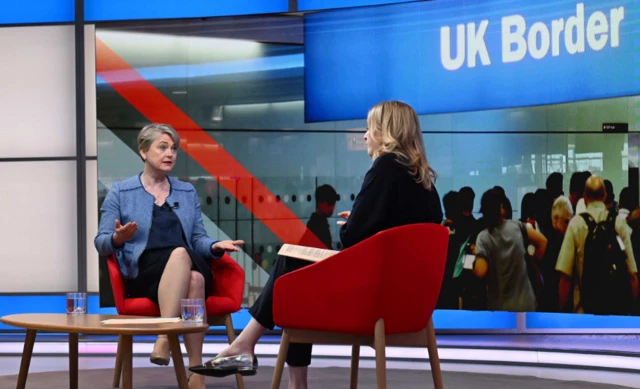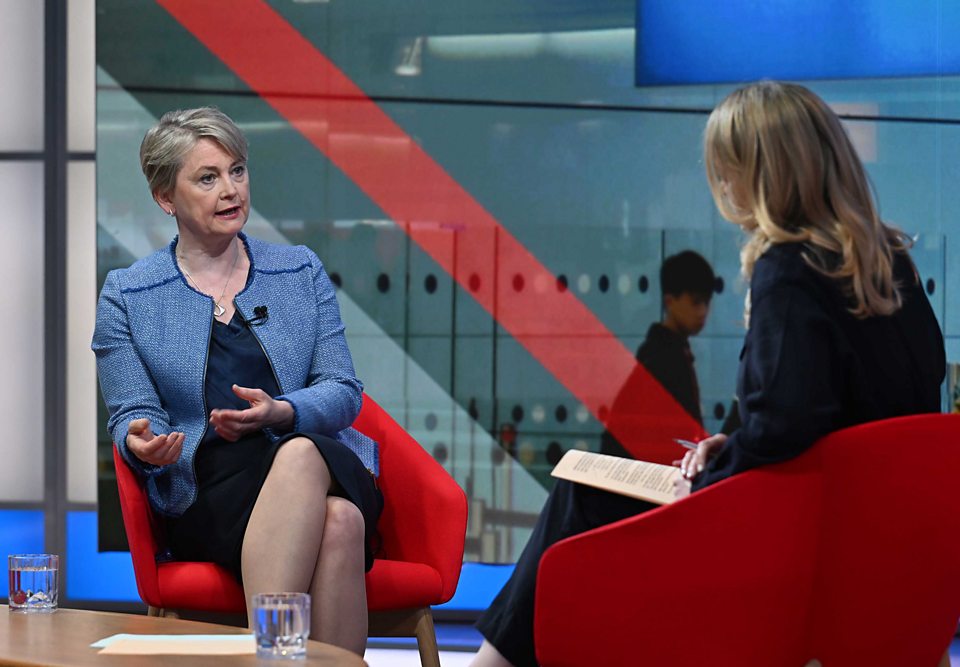Home secretary lays out plans to curb migrationpublished at 12:21 BST 11 May
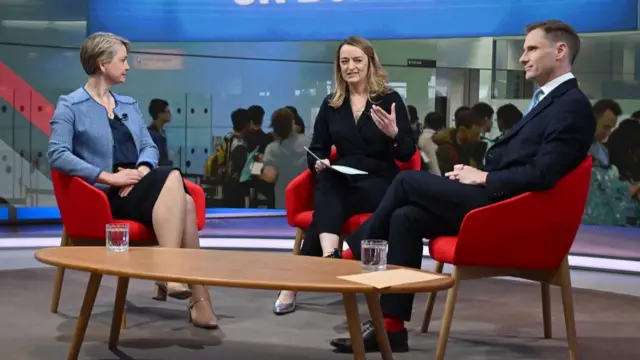
Home Secretary Yvette Cooper laid out the government's plans to curb net migration on today's Sunday with Laura Kuenssberg, ahead of the publication of a White Paper on immigration in the coming days.
The new measures include cutting the number of visas for lower-skilled workers by up to 50,000, ending the recruitment of care workers from abroad and ramping up standards on graduate visas.
That will have consequences for migrants looking to work and study in the UK, employers and the economy as a whole.
However, shadow home secretary Chris Philp said Labour's plan wasn't going far enough. Instead, he said the Conservatives would cut net migration further - but did not specify a target.
We also heard from Steph, who shared her story of abuse as a child by men - one, she believes, was a police officer. "[I was] just locked in a house," she says. "Just passed to people, people taking turns on me."
Cooper was pressed on why the government had not called a national inquiry into the issue. The home secretary said more can be done to tackle child abuse and the government was waiting for the outcome of a national audit - expected later this month.
We are closing our live page now and we'll be back next week for another episode of Sunday with Laura Kuenssberg.
